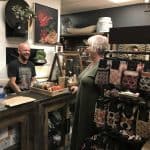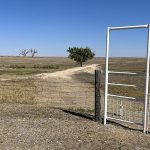Victor Vasquez, USDA Deputy Undersecretary for Rural Development, made the keynote presentation at the Midwest Rural Assembly.
 He started with the story of a road trip with a big city friend. As they reached a particularly empty stretch of land, the friend asked, should we turn back?
He started with the story of a road trip with a big city friend. As they reached a particularly empty stretch of land, the friend asked, should we turn back?
Turn back? Victor asked, why would we turn back?
The friend said, there’s no buildings and no one around. What if we break down or have a problem?
Victor knew that someone would stop and help if they needed it. And that’s the essence of rural life; we depend on each other.
Broadband
Broadband is not just technology, Vasquez said. Broadband is also what it will do. What it will do that is the most important is change the education for children with few opportunities. It will change their education and how they view the world, he said.
Rural Industry
As the American auto industry suffered major losses, the USDA looked at the potential impact on rural communities, he said.
“In rural America, we are participating in the supply chain of major corporations,” Vasquez said.
Census Rural Data
Vasquez also participated in a round table discussion, answering questions from participants. One person pointed out that the latest Census did not collect income data for all communities. Many programs, especially through USDA, previously relied on Census poverty data. Most small towns that are covered by the less comprehensive American Community Survey will include projections based on a much smaller sample.
USDA and the Private Sector
When asked about the USDA’s role with private sector businesses, Vasquez pointed out the Office for Women and Minority Business, which is mostly focused on procurement.
Vasquez also brought up an idea that he seems to have spent quite a bit of time thinking about. In order for smaller businesses to compete for larger government contracts, they could use a cooperative model.
He gave an example of a large multi year auditing contract. While no one CPA firm in, for example, the Texas-Mexico border region could handle that contract alone, there are hundreds of qualified CPAs in the region. If a group of them could form a cooperative, they could compete for that auditing contract. The goal of achieving 20% of government procurement from rural areas would be easier to achieve if smaller firms could band together in this way.
“We need to explore policies that explore that rural-urban connection,” Vasquez said. “We have more similarities than differences.”
New to SmallBizSurvival.com? Take the Guided Tour. Like what you see? Get our updates.
- About the Author
- Latest by this Author
Becky started Small Biz Survival in 2006 to share rural business and community building stories and ideas with other small town business people. She and her husband have a small cattle ranch and are lifelong entrepreneurs. Becky is an international speaker on small business and rural topics.










